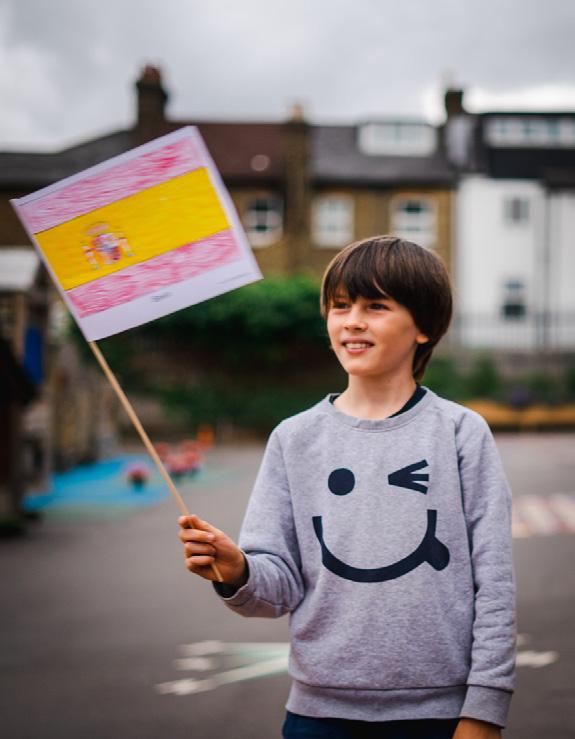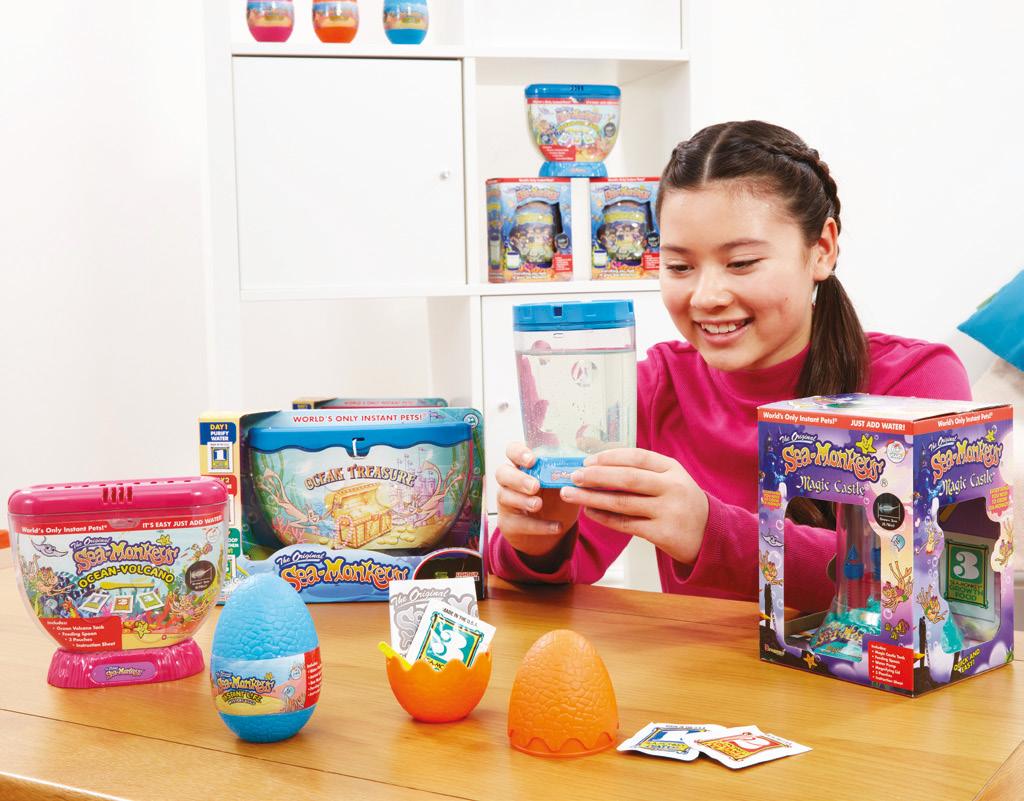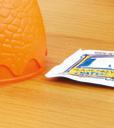South East























Editor Linda Stone editor@familiesselondon.co.uk 020 8241 0423
Sales Patricia Holloway patricia.holloway@familiespublishing.co.uk 07980 556813
Design Rebecca Carr rebecca@familiesmagazine.co.uk 07789 882467
Next issue: May/June
Booking deadline: 29 March
Nov/Dec giveaway recipients
Congratulations to all our winners. You can find a list at www.bit.ly/ND23recipients
Would you like to feature your business in our May/June issue? Call Patricia today on 07980 556813 for more information.
In this issue
Is there a touch of spring in the air? If not quite yet, then definitely very soon. It’s time to come out of hibernation and re-embrace the great outdoors as nature comes back to live.
To help you do that, we have some fabulous walks from our friends at The Outdoor Guide (www.theoutdoorguide.co.uk) as well as some great nature activities you can use to motivate your kids to enjoy walking! And make sure you get out your calendar, go through our What’s On section and put in some of the great events and activities for the Easter holidays.
We also have some fabulous articles about education in this issue, including how to help your child develop a positive attitude to learning.
Finally, in this issue, we have Sea Monkeys prize bundles to giveaway! Apply for six inside. By doing so, you’ll also ensure you receive our digital magazine with lots more content and goodies on offer.



Would you like to host and teach English to a foreign student in your home ?
We are currently recruiting hosts who can offer a spare bedroom, 3 meals per day and the required lessons and activities
You choose when to host and who to host !
Payment from £500 to £800 per week Get in touch to find out more: www.influentme.com

Anxiety about going to school affects about five percent of children in the UK. Part of normal development in young children, it becomes more concerning if it doesn’t pass over time. If your child is refusing school due to anxiety, the longer this continues, the harder it becomes for them to return.
Missing school not only means your child loses out on education but also other essential skills, such as mixing with their peers and becoming more independent from their parents. School attendance is, in fact, mandatory: under UK law parents are responsible for ensuring their child attends school. However, in 2022, more than sixteen thousand parents were fined for unauthorised school absences.
A variety of factors can be behind a reluctance to attend school. Young children often experience separation anxiety or may be anxious by temperament. Some children may experience difficulties at school with friendship group dynamics or feel intimidated or inferior. Others may find the work challenging and the pressure to perform well overwhelming. Difficulties at home or illness may keep them away from school. Commonly it is a combination of some or all of these things that creates anxiety and may lead to the arrival of the ‘school wobblies.’
How to identify ‘school wobblies’
The feelings your child may experience are real and this anxiety can lead to physical symptoms such as sweating, headaches, feeling sick or an increased heart rate which can make them

Here are some tips for helping your child build a positive mindset and instilling the habit of going to school.
Open communication: actively listen, try to be calm, patient and show empathy.
Establish a positive routine: consistent morning and bedtime routines provide structure and reassurance.
Positive reinforcement: celebrate achievements, no matter how small, to boost your child’s confidence. Show interest in their learning, progress and friends, always talking positively about school.
Build strong connections with your child’s teachers and peers. Work closely with your child’s school to address areas of struggle, with additional support provided, if necessary.
Promote independence: involve your child in decision making to empower them and give them a sense of control.
Seek professional help. If school reluctance persists or appears rooted in deeper issues, seek help from the school’s SENCO initially.

feel dizzy. Children may be reluctant to get up and ready in the morning. They may be angry and upset or acting out at home or they may withdraw and seem quiet and low, often fixating on small issues. These are all automatic and mostly normal reactions.
However, it’s important to bear in mind that for every missed school day, it becomes harder for your child to go back. For some children an occasional day off could be the best thing but, for an anxious child, this can make things much worse. So try not to give in and keep continuity.
School reluctance requires a nuanced and empathetic approach. By understanding the root causes, fostering open communications and implementing positive strategies, parents and educators can work together to create an environment in which children feel supported, confident and eager to embrace the opportunities that schools offer.
Lisa and Catherine are co-founders of Emparenting (www.emparenting.co.uk), supporting children, parents and families with the insights, skills and tools needed to nurture the development and well-being of the next generation.

Once you understand the root of your child’s anxiety, work with their school to create a personalised plan of support and schedule regular progress meetings. This plan may include:
Taking your child in earlier to school to meet with a known key adult or friend to ensure a calm start to the day.
Providing a visual timetable to give a clear structure to the day, including support when moving between lessons. Where possible, ensure your child is informed about changes.
A safe space to retreat to and opportunities for brain breaks.
Activities and clubs at breaktimes to provide structure. A specific responsibility can help them feel involved.
An in-school Social Skills Intervention Group to embed positive friendship habits.
Practising mindfulness and relaxation techniques to help calm an anxious mind.
I can be whatev e r I want to be
The Mighty Girls Challenge shows me what I can do.
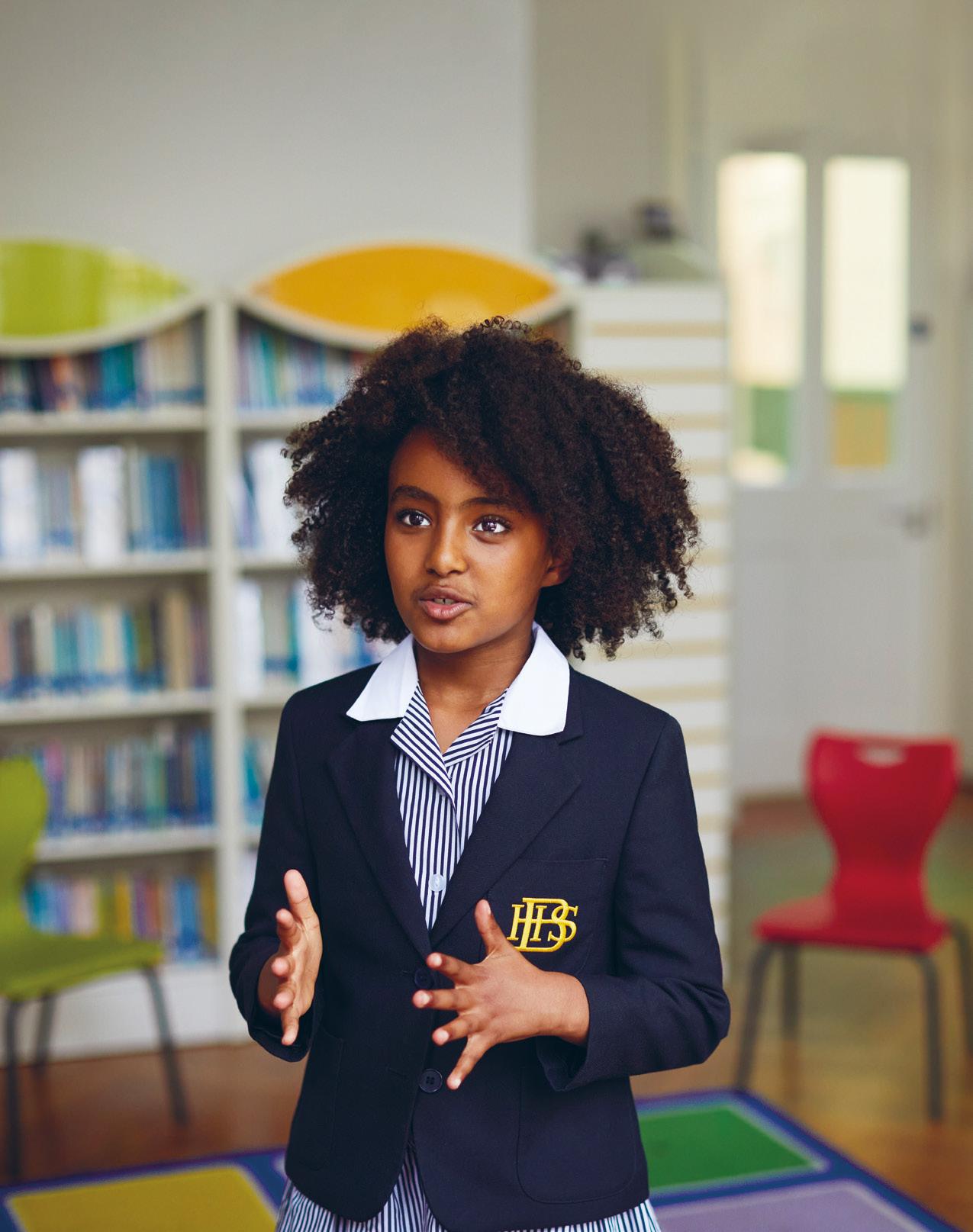
‘Excellent in all areas’ - ISI
BL A CKHE A TH HIGH
Our girls are encouraged to be brave, ambitious and curious through our Mighty Girls Challenge programme.
Where girls boldly go blackheathhighschool.gdst.net
Apply now for Year 5 - Independent Day School for Girls aged 3-18


Dulwich Prep London is an exceptional boys’ preparatory school. From September 2025, we will extend our provision to GCSE (age 16), starting with Year 9.
We offer a wide range of opportunities to nurture independent thinkers who go on to be thoughtful citizens of the world, equipped with a strong moral compass and the ability to adapt to our rapidly changing environment.
We are known for supporting families to find the right senior school for each child at the right time and will now off families both a Prep and Senior option.
Our eight core values of Love, Courage, Gratitude, Humility, Justice, Service, Self-Discipline, and Honesty sow the seeds of possibility in the mind, heart and spirit of each boy and create the right culture and conditions to allow these possibilities to flourish.



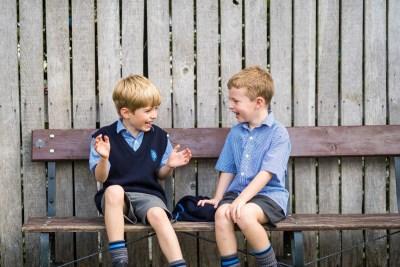
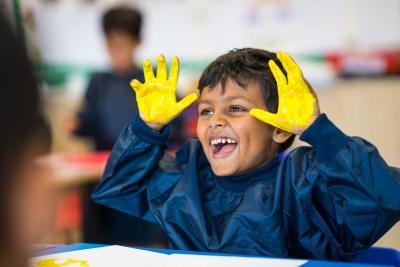



No matter how skilled or knowledgeable a person might be, their attitude may well be the deciding factor in their future success, both personal and professional. Recent neuroscience has discovered the crucial role a positive attitude plays in the learning process, particularly during the primary years.
The second a child is born, their brain, with roughly eighty six billion neurons or nerve cells, ‘hits the ground running’ making connections through senses and experience. Everything a young child does, feels, hears and sees creates pathways between these nerve cells, building a reference bank of experience.
In the first three years, the connections the brain makes have risen to one thousand trillion. This is an automatic process. Ninety percent of brain development is complete by the time a child is 5 years old.
Although there is a default setting for the brain to function whether we engage or not, when it comes to learning, children who are actively engaged in the learning process are going to be far more effective and therefore, higher achieving than their peers who are simply ‘going through the motions’ of learning. The child who loves practising the guitar is going to progress more quickly than the child who battles with you or resents practising!
The reason for this is that as we grow, the brain takes its lead from what we do repeatedly. Where we make a conscious decision to put effort is where the brain will focus connections.

Just before Christmas, 9-year-old Rose, from Year 4 at Blackheath High Junior School, took on a women’s chess champion at a ‘simultaneous exhibition’ alongside thirty other talented 6 to 16-year-olds from across the UK.
In this event, one player, in this case six-time French women’s chess champion Sophie Milliet, competes against multiple opponents at the same time.
The event was organised by She Plays to Win, a not-for-profit organisation which aims to encourage more girls to play chess. This organisation was founded by England International Women’s Chess Coach Lorin D’Costa, who also runs Blackheath High Junior School’s prestigious chess club.
Rose says: ‘Playing chess against Sophie was really exciting – I don’t know how she managed to concentrate on thirty games at the same time, making the right move each time. I hope I can play as well as her one day.’
Visit www.blackheathhighschool.gdst.net for more information on Blackheath High, including dates for upcoming open events.

Children who enjoy what they’re doing, who love learning and who have a positive attitude, actively engage. Active engagement creates the signal for the connections the brain makes to be ‘cemented’ in myelin, a coating of fat and protein which make them ‘automatic.’ This is how learning is assimilated and habits are created.
The brain doesn’t know whether what a child is doing is good or not, it just takes its lead from repetitious behaviour and feedback from their surroundings, in this case, parents and teachers. The more positive a child’s attitude, the more positive the connections and growth they make, which can lead to excellence in performance.
Gail Hugman is a teaching and learning expert at Lessons Alive (www.lessonsalive.com) and author of 100 Things to Learn Before You’re 10, plus the soon to be published Making the Pennies Drop – Helping your Child Build Skills. Available from Amazon.

Encourage your child to be independent by teaching them skills. Start with self-control and move on to organisation, planning and taking responsibility. Children love to have a positive, personal development reason for what they do that both has meaning for them and brings results.
Children don’t assume. Choose a regular date for a hot chocolate or breakfast alone together. We suggest once a month. Clear everything to listen to how your child is getting on. This validates them and tells them they matter enough for you to make space to talk to them.
If you can’t listen ‘right now,’ tell them when you will. Children are quite happy to wait until they have your attention if you let them know when that will be.
Recognise effort. A child once told me I could photocopy a blank sheet of paper to help the school budget. I loved his creative thinking, took him to the photocopier and explained in a warm and friendly way the reason why that idea wouldn’t work!
Podcasts have become a huge part of many people’s lives, offering a wide range of interesting, informative and entertaining audio which can be listened to for free at a time that suits them. This applies to children too, with many high standard podcasts available that parents will also enjoy sharing.
Podcasts are a brilliant way for kids to absorb information and can be played in the car, before bed to wind down or while doing a jigsaw or colouring.
Story Pirates Ages 5+
Stories written by children are given some polish but not too much, so they can be brought to life by adult actors, comics and musicians. Performers such as Clare Danes and Julie Andrews totally commit to the kids’ ideas which are often off the wall eg I Don’t Think So Day and The Squirrel Astronaut. www.storypirates.com
Rebel Girls Ages 5+
An offshoot of the best-selling book of the same name, this podcast is all about championing clever and tenacious women from across all areas, including the arts, civil rights and sport. Each episode is about twenty minutes long and focuses on one extraordinary woman, with the episode delivered by another extraordinary woman. Despite the gendered title, these are stories for everyone. www.rebelgirls.com/podcast
Once Upon a Time in Zombieville Ages 9-12
An award-winning, BBC sci-fi adventure podcast with funny bits! Featuring lead characters with visual impairment and dyslexia, Zombieville is for those who might struggle to read but still love a great story. With lots of action, expressive voice actors and real-life soundtracks, it’s like ‘a comic book for the ears.’ www.bit.ly/BBCZombieville
Wow in the World Ages 5-12
A goofball, award-winning science podcast that tackles serious scientific enquiries and makes learning fun, even for parents. Hosted by Mindy, a klutz with a time machine, Guy and an everexpanding cast of wacky characters, the podcast shares stories about the latest news in science, technology and innovation. Stories that give kids hope, agency and will make them say ‘WOW!’ www.bit.ly/WowInTheWorld
History Storytime for Kids Ages 5-11
Sophie (age 7) and Ellie (age 5) and their daddy tell the stories and use lots of funny sound effects. Hear amazing stories of animals in history, stirring historical stories of love and betrayal and stories of strong women and how they changed the course of events. Uniquely, it stars the charming children themselves who recount the stories with surprising fluidity and humour. www.historystorytime.com
What if World Ages 5-12
Hosted by Mr Eric who uses silly voices and crazy characters to answer a new ‘What if’ question sent in by an inquisitive child every episode. The scenarios are typically fanciful: think ‘what if everyone wore the same colour?’ or ‘what if snow got on the moon?’ These are the kind of questions that inspire the quirky stories for this imaginative podcast. www.whatifworldpodcast.com
Activity Quest Ages 5-12
A weekly podcast packed with stuff to do. Join presenters from children’s radio station, Fun Kids, as they visit locations nationwide to find out what they offer. They’ve tried everything from archery to heritage railway rides, rock-climbing to museum visits - even feeding tigers! The podcast is filled with fun ways to spend your weekend. www.bit.ly/ActivityQuest
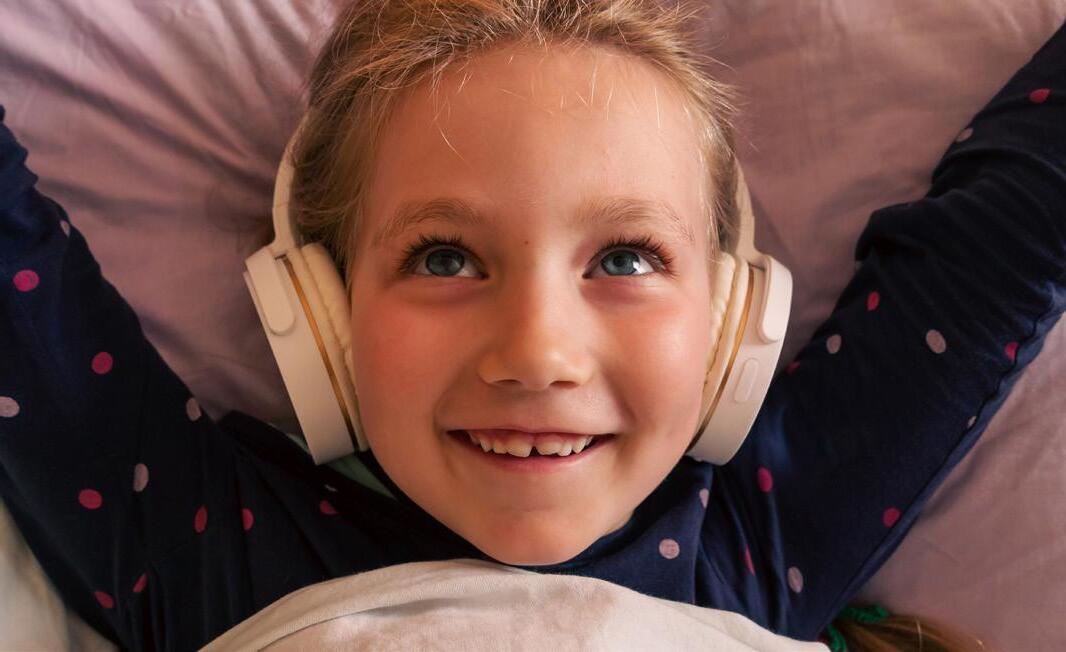
The Week Junior Show Ages 8-14
Each week, Bex from Fun Kids is joined by members of The Week Junior team to discuss their favourite stories, debate the week’s hot topic and discover whether the Real or Rubbish? report is fake news or the real deal. Recent news topics include Do animals have imagination? Should fireworks be banned? How are headlice helping historians? www.bit.ly/WeekJunior
The Alien Adventures of Finn Caspian Ages 5-8
This serialised, science-fiction story, told in fifteen to twenty minute episodes is perfect for driving around, on road trips or even at bedtime. The story centres on an 8 year old boy living on an interplanetary space station with his friends Abigail, Elias and Vale who explore the galaxy, help the occasional alien and solve mysteries. www.bit.ly/FinnCaspian
The Unexplainable Disappearance of Mars Patel Ages 8-12
Award-winning, serialised mystery series (start with episode 1) with a voice cast of actual kids and a suspenseful plot, this will keep your tween hooked for hours. Listen along as 11 year old Mars Patel and his pals JP, Toothpick and Caddie set out on an audacious adventure in search of two missing friends. www.bit.ly/MarsPodcast

Perform is a unique type of children’s drama school. Focusing on child development, a specially formulated mix of drama, dance and singing is used to bring out every child’s true potential. Classes focus on developing the 4 Cs: Confidence, Communication, Coordination and Concentration and on having the best fun of the week!
The curriculum uses a mix of energetic games, catchy songs and funky dances. All class materials are written by Perform with a different theme each term to keep young imaginations buzzing. The new term starts in April with two brilliant themes. Perform youngsters ages 4 to 7 will be entering the Fairytale Forest for an adventure with some familiar characters – Perform has taken taken much-loved classic fairytales and mixed them up with the latest funky moves and grooves. Meanwhile, children ages 7 to 12 will zoom off on an exhilarating adventure with Robinson Crusoe -but he’s stranded in space, not on a desert island!
Children of all abilities are welcome to join at any point in the term and now is a great time to try a FREE class.
Book a no-obligation FREE trial at www.perform.org.uk/try
More about Perform’s weekly classes
Confidence building weekly drama, dance and singing classes for 4-7s and 7-12s, designed to boost confidence, communication, concentration and coordination. To book a FREE class in one of the following venues, visit www.perform.org.uk/try, email enquiries@perform.org.uk or call 020 7255 9120.
Beckenham: St George’s Church Hall, Beckenham Methodist Church
Bexley: St John Fisher Catholic Church Hall
Bermondsey: Bermondsey Village Hall
Blackheath: St Michael and All Angels Church Hall
Brockley: St Andrew’s Centre
Bromley: St John The Evangelist Church
Camberwell: Longfield Hall
Chislehurst: Chislehurst Methodist Church
East Dulwich & Dulwich: St Stephen’s Millennium Hall, St Barnabas’ Church Hall, Francis Peek Community Room, Goose Green Centre, St Barnabas’ Parish Hall
Eltham: Christ Church Community Centre
Forest Hill: St William of York Catholic Church Hall
Greenwich: The Forum
Herne Hill: The Prince Regent, Carnegie Community Hub


Hither Green: Lochaber Hall
Kidbrooke: St James Rectory
Lee: Church of the Good Shepherd
Orpington: Orpington Methodist Church
Peckham Rye: Amott Road Baptist Church
Petts Wood: Lakes Wood Hall
Sidcup: St Lawrence of Canterbury Church Hall
Surrey Quays: Time and Talents in Surrey Quays Shopping Centre
Waterloo: Waterloo Action Centre
Woolwich: Under 1 Roof
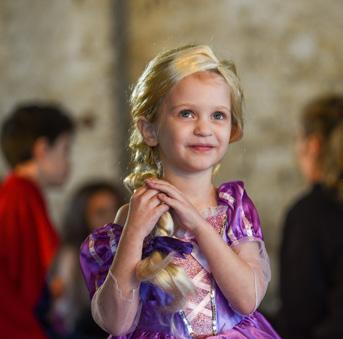
Unravel the wonderful story of Rapunzel, a feisty heroine who gets locked in a tower in the forest. Will a passing prince save her or will the wicked witch get there first? Ending with a magical performance for family and friends, these three-day drama, dance and singing courses are a real holiday treat.
Venues: Blackheath & Herne Hill (3-5 April) Dulwich & Beckenham (8-10 April).
Book at www.perform.org.uk/rapunzel


After the baby months of feeding, getting to grips with naps and developing a routine and then finally moving onto solids, you’d think that the first year would be the hardest when it comes to sleep right!?
Wrong! Toddlers are notorious for their sleep challenges and whilst you may have had a baby who napped well and slept through the night, it is not unusual for this all to change in their second year and beyond – welcome to toddlerhood!
Sleep for toddlers is complex. It’s not just about making sure they are well fed and awake for long enough during the day but also whether they’ve had enough of your attention to not crave it at night as well. Cue multiple visits to your bedroom once they can get out of their bed!
For many toddlers, imagination kicks in from around the age of two. This can bring genuine fears of the dark, monsters or anything else their little brain has convinced them is scary. This makes dropping off to sleep difficult and they may wake and need your support during the night to settle down again.
Reading comforting books together, favourite teddies or dolls and limiting TV exposure can be really useful, as can keeping a warm red or orange night light on for them.
Another key stage in a toddler’s development arrives as they start to realise that they do, in fact, possess the language and control to be able to delay going to bed. ‘One more story, two more songs, I want milk, I need a wee’ have been commonly heard by many a toddler parent!
Whilst this is a phase and happens to the vast majority of parents, it is important to consider sticking to your boundaries during this period so that bedtime doesn’t start to become a two hour process. We speak to many parents who feel that they have lost control and that their toddler now dictates everything about their bedtime routine.
And then of course, there is the idea that maybe they just want to be close to you.

Common in times of change or after bouts of illness, night terrors usually occur in the earlier half of the night. Your child will appear to be but is not ACTUALLY awake. They may talk, scream, thrash around, have their eyes closed or be fixated on a point in the room.
Keep the area safe and ensure they don’t hurt themselves but try not to purposefully wake them up. The night terror will pass and they won’t remember it in the morning.

Sleeping in the same bed is considered normal in many cultures. The number of parents who are happy with this arrangement in the UK varies hugely. Whilst some are very pro co-sleeping, others prefer separate beds and the prospect of a better night’s sleep without being kicked by little limbs. When it comes to night time sleeping arrangements, it is the best approach for your family that counts.
The common theme around sleep for both for babies and toddlers is consistency and some parents struggle with this. Whether you help your toddler fall asleep or ask them to settle to sleep on their own, it is the consistency of whatever approach you take that helps sleep along.
Doing different things, at different times of night, can be really confusing for a toddler and this can lead to multiple night wakes and confusion. Your best bet? Choose one approach to sleep and stick with it. Then the whole family will get a better night’s sleep.
Heidi Skudder is a Sleep Expert and founder of Positively Parenthood (ww.positivelyparenthood.com) She is also a regular speaker at The Baby Show (www.thebabyshow.co.uk) taking place in London in March and October, Birmingham in May and Manchester in June.


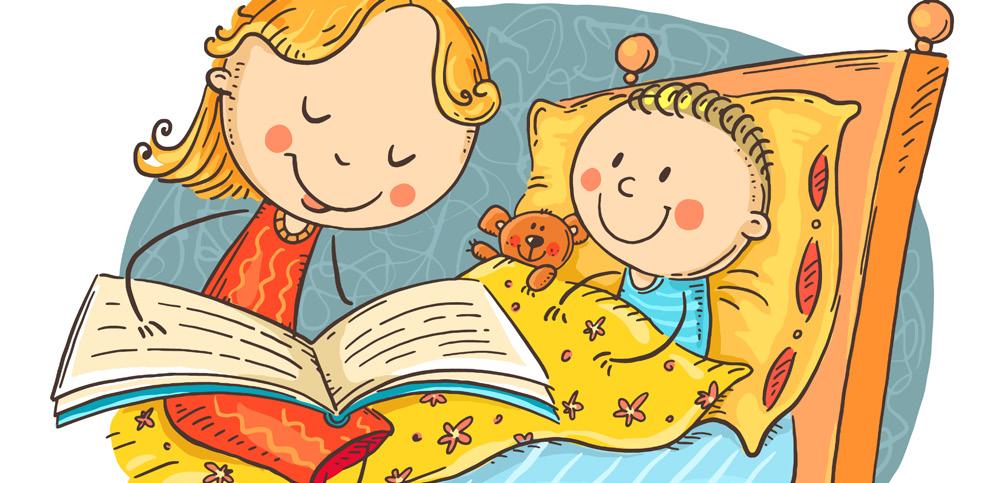
Visual charts can be a brilliant aid in dealing with the pushback on bedtime. With a pictorial bedtime routine on a wall in your toddler’s room, you can refer back to it at trickier points of the evening.
If your toddler is asking for one more story, you can say ‘let’s look at your chart and see how many stories we have!’ It gives them a point of reference and a sense of being in control, which is so much of what a toddler strives for.
There’s nothing better than a walk outdoors in the springtime. It’s when the world is starting to awaken from its winter slumber and colour starts to reappear amongst the flora that surrounds you. The Outdoor Guide (www.theoutdoorguide.co.uk) has selected for Families some of its favourite walks from across the UK - walks that make a springtime stroll a perfect family outing.

This is a magical walk in the heart of Norfolk and perfect for springtime. From the snowdrops in February through to the bluebells in May, this walk offers enchanting sights and is loved by children and adults alike! www.bit.ly/walsinghamW

This is a lovely walk any time of the year but especially in the spring when the garden is ablaze with rhododendrons, magnolias, azaleas and camellias, underplanted with bluebells.
www.bit.ly/colbyG


This walk is perfect for the springtime as everything comes to life in both the formal gardens and in the wilder spaces. The walk is just under two kilometres in length and is suitable for all the family, including the dog (signs show where dogs needs to be kept on the lead and where they can run free).
www.bit.ly/redwoodS

This lovely walk, at just over six kilometres, offers some great views out across Rydal Water. Take in sights of Rydal Mount, former home of William Wordsworth, as you approach Rydal Water. It’s worth taking a moment to stop here to admire the gardens and their celebrated carpet of golden daffodils.
www.bit.ly/amblesideC

This is a walk that really must be undertaken in the spring (especially late March into early April). It’s in the beautiful valley of Farndale in the North York Moors National Park and, as the name suggests, will take you through areas full of beautiful wild daffodils.
www.bit.ly/farndaleD

Located in the middle of Poole Harbour, Brownsea Island is famed for being the home of the Scout Movement. But did you also know that in the 1920s it was also home to a thriving daffodil industry? In the spring, you’ll still see many of these flowers, as a reminder of days gone by. Brownsea Island reopens to visitors in mid March after a winter break and is a wonderful destination for a day of exploring!
www.bit.ly/brownseaD

With over four hundred miles of public rights of way, Dartmoor has a great selection of walks for all the family. This one, at just over ten kilometres, is a great walk for families with older children, that takes in some of the most magnificent corners of the rugged landscape on offer. The trail runs through Holwell Lawn which, during the spring, is carpeted with beautiful bluebells.
www.bit.ly/dartmoorM

As you head up The Knock, you’ll be walking through woodland in an area that is rich in important native species, including yellow pimpernel, wood sorrel and barren strawberry tormentil so do keep the family to the path to help protect what is growing around you.
www.bit.ly/crieffK
The Outdoor Guide (www.theoutdoorguide.co.uk) showcases brilliant, tried-and-tested Ordnance Survey mapped walks for all ages, including a section specially for families. Its foundation (www.theoutdoorguidefoundation.org) aims to make the outdoors accessible to all children via the Waterproof and Wellies project.
The impact of nature on wellbeing is well documented and getting children outside is proven to boost both their physical and mental health. But how do you incentivise them with different, exciting, low cost and eco-friendly outdoor activities all year round? Think crafts, science experiments, scavenger hunts, beach and camping games and so much more.
Here a just few nature activities you may want to take with you to liven up your next outdoor adventures as a family.
Pop an object or two in your backpack as you walk and have the rest of your group ask questions to try and guess what it is. You can tell them the first letter of the object and they get ten questions to ask about it - to which you can only answer ‘yes’ or ‘no’.
Will they work it out or will you have to tell them? Best not to take anything too heavy or it will feel like a long walk!

At the start of your walk find a long, slim but strong stick. As you walk, thread on the best leaves that you find. You might want to go for all large leaves or all orange leaves or maybe a mix. Encourage every member of your family to do the same – you’ll be surprised how different all your wands look. On your return, arrange your leaf wands into a vase for a beautiful display.
If you have a neighbour or older relative who doesn’t get out much, consider gifting them a leaf wand to bring a bit of nature’s treasure into their home.

Each person chooses a letter from the alphabet and tries to spot things beginning with that letter, as they walk. Tally up how many you things you find and see who spots the most.
Because this can be tricky for younger children, it is fine to use descriptive words too so if you have chosen B for example, you could say ‘blue sky’ or ‘big tree.’ Or just ‘bench’ if everyone’s ready for a sit-down rest!
You may want to specify that each descriptive word can only be used once, as well as taking a notebook to keep track of your spots.

For each challenge, make sure you agree on a ‘base’ before you start.
Find five stones, then bring them back to base and see if you can use them to build a tower that doesn’t fall over.
Choose a marker such as a particular tree. Balance your paper cup on your head and walk to the marker, then try walking back to base without the cup falling off your head.
Find some twigs, bring them back to base and use them to form the first letter of your name (or your whole name if you want a bigger challenge).
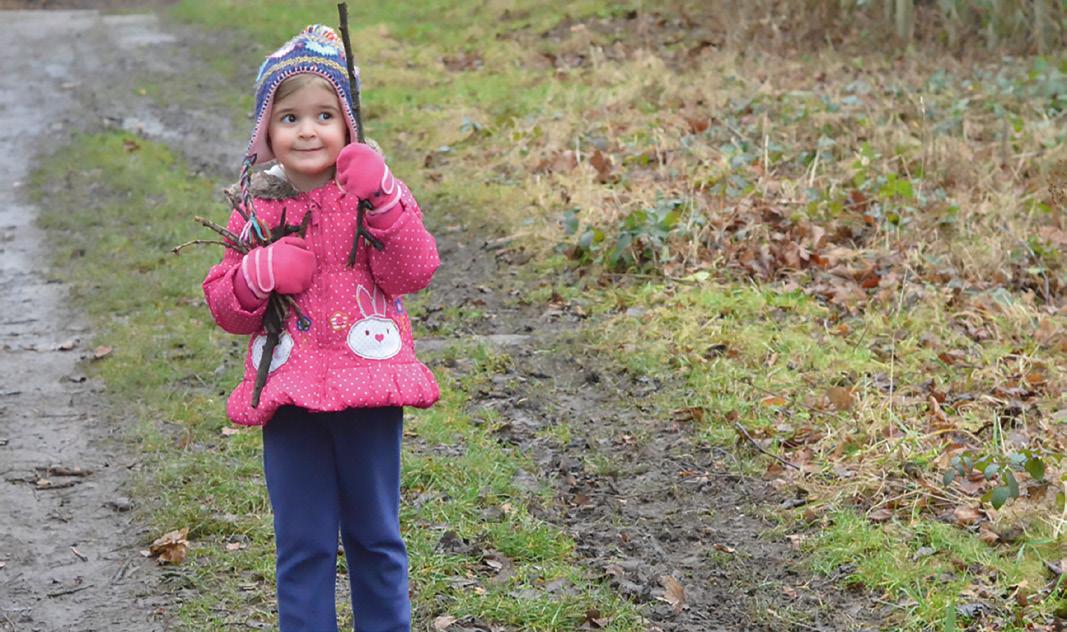
Catherine Hughes and Becky Goddard-Hill are co-authors of A Year of Nature Walks and Games, a book packed full of ideas to keep kids entertained in the great outdoors all year long. It features crafts, science experiments, scavenger hunts, beach and camping games plus lots and lots of ideas on how to make the great outdoors inspiring. Available from good book stores and online retailers. Never want to miss another issue?



Parenting norms change over time. For example, in 2024 most parents would agree that hitting your child is unacceptable. Has shouting gone the same way? Or is it okay to express your frustration by raising your voice? If you shout but wish you didn’t, here are some tips to help you keep your cool. But first, two different mums share their perspectives.
‘It’s perfectly normal and natural to shout sometimes’
‘Shouting is something I want to avoid as much as possible’

Sometimes I shout at my children and I really think it’s okay. My child is growing up in a world where people shout and pretending that the world is one long festival of peace will only set them up for a shock. Once they start work as an adult, they are unlikely to avoid ever being shouted at. Even in school, they will get shouted at. I remember a PE teacher who just couldn’t hide his frustration when I forgot my PE kit. The shouting was upsetting but even the calmest adults have limits to their patience and children need to understand that they can survive and thrive in a word where that happens.
Faced with the typical toddler’s stream of daily questions, along with the sleep deprivation that comes with parenting, who isn’t going to find their patience strained? It’s perfectly normal and natural to shout sometimes. Not every parent can maintain a supernatural level of calm and sometimes shouting is an expression of how much they care. Shouting at your child when they are about to step out into a busy road could save their life. But even less black and white situations might call for some way to release your frustration and personally I think it’s better than falling back on other less honest ways of venting your emotions like sarcasm, sulking or passive aggression.
Jade, mum of two girls, from Wiltshire
Pausing is key. No matter how frustrated, it’s preferable to resist responding at all until your emotional storm has calmed.
Counting and breathing techniques are tried and tested ways to create an immediate pause in the conversation and slow down the release of cortisol and adrenalin.
It’s important to notice and learn the physical sensations that signal that you are losing your temper. As you get better at this you will get better at stepping back earlier in the process.
When I shout, it feels like a failure and I always regret it afterwards. For me, that’s all the evidence I need that shouting is something to avoid as much as possible. I also don’t like it when my children shout and always pull them up for doing it. But I can hardly expect them to learn to stay calm if I’m not setting an example.
I’ve tried to get better at keeping my emotions under control by breathing and counting. I believe this has helped the whole family to stay calm and keep talking until we reach common ground, instead of raising our voices. More than that, it helps me to slow down and wait for longer while my children figure out what it is they really want to say. I listen for longer without interrupting to try and understand what it is they are really trying to tell me. If they shout, it’s not my job to shout back at them; I see it as my chance to show them there is a better way. I want my kids to respect me, not do as they are told because they are scared of me.
At the end of the day, if we’ve got to boiling point, taking some time out away from each other seems like a preferable option to just standing there, shouting our heads off at each other.
Sue, mum of three, from Nottingham
From dancing to puppetry with soft toys, Hand in Hand Parenting (www.handinhandparenting.org) offers tonnes of ideas for diffusing moments of tension and anger with younger children.
Meditation is one of the few activities proven to reduce the reactivity of the brain to stress, if practised consistently over a period of time. Headspace (www.headspace.com) has meditations designed specifically for parents.
The Calm and Confident Parenting Club (Facebook @calmparent) offers video tutorials including a two minute technique for releasing tension: https://vimeo. com/800838958
According to a recent survey, a staggering ninety one percent of children ages 3 to 15 play video games on a device.* This gives rise to concerns about potential gaming addiction, the impact on children’s social skills and the presence of seemingly violent or inappropriate content, all of which contribute to parents’ unease about their children’s gaming behaviours. But what if we challenged the notion that gaming is the villain?
In our view, there are often-overlooked advantages of gaming for children. Here are some of the key benefits for young minds and some guidance for parents on ensuring a safe and enjoyable gaming experience.
Despite the common perception of gaming as a mere pastime, recent research underscores the significant impact of strategic and puzzle-solving games on cognitive functions. By enhancing problem-solving, critical thinking and spatial awareness, these games are more than entertainment. They actively stimulate creativity and imagination, with many titles encouraging players to construct their own virtual realms and narratives. These activities lead to cognitive advantages that translate into reallife problem-solving and creative thinking, providing a mental exercise with practical applications.
With the rise of online multiplayer games, our children have the opportunity to interact and collaborate with peers from diverse backgrounds.
Many video games involve multiplayer modes or online communities, enabling social interaction and collaboration. Engaging with others in a virtual environment can help children develop social skills, teamwork and a sense of camaraderie,

In numerous games, it is now typical to find in-app purchases and microtransactions. It is essential to initiate open and positive conversations with your child regarding responsible spending in these gaming scenarios. Prompt them to grasp the significance of money and recognise the possible repercussions of unauthorised in-game purchases. Establish boundaries on their spending over specific periods and emphasise the importance of seeking permission before making any purchases. This approach ensures that gaming remains an enjoyable and educational experience while instilling vital financial lessons to safeguard against unforeseen expenses.
As well as discussing responsible spending with your child, educate them on the concept of virtual economies within games. Explain how in-game currencies work and the importance of distinguishing between virtual and real-world money. Emphasise the satisfaction of patience and earning rewards through gameplay rather than resorting to instant purchases. By instilling these values, you empower your child to make informed decisions, fostering financial responsibility and enhancing their overall gaming experience.

while being part of gaming communities can create a sense of belonging for children, especially those who may feel isolated in other aspects of their lives.
Despite the benefits, protecting your child’s online experiences is a top priority as a parent. Creating a secure and enjoyable gaming environment for your kids is crucial to them gaining from the advantages. Like films, games come with age ratings. The Pan European Game Information (PEGI) system provides detailed age ratings to help parents determine the suitability of a video game for their child.
As long as parents ensure children are engaging responsibly, gaming can be more than a hobby. It serves as a valuable avenue for children to learn, develop and forge connections in today’s digital landscape.
Dr Sra and Mr Behl are owners of the youth esports arena Valhallan (www.valhallan.com), which offers a secure and nurturing environment in which children can foster their love of gaming.

Video games often receive criticism for their perceived impact on our children’s mental health but the reality is that their influence on child development is frequently misunderstood.
Beyond mere entertainment, gaming is a powerful training tool for a range of essential skills. Engaging in virtual adventures or competitive game challenges provides children with a unique opportunity to relax and develop emotional resilience. Immersive gameplay allows children to escape momentarily from real-life pressures and challenges, providing a sense of relaxation and escapism. Certain video games often include objectives and rewards, teaching children the value of setting goals and working towards them, while achieving in-game milestones can boost self-esteem and motivation.
Some games go a step further by offering players a chance to improve their emotional regulation and decision-making skills in high-pressure situations; skills that easily transfer to real-life scenarios. In essence, gaming provides a constructive way for your child to relieve stress, giving them space to unwind and acquire coping skills that will be significant for their overall personal development.
All details are as provided when going to press. However, in case of changed plans, do double-check before setting out.
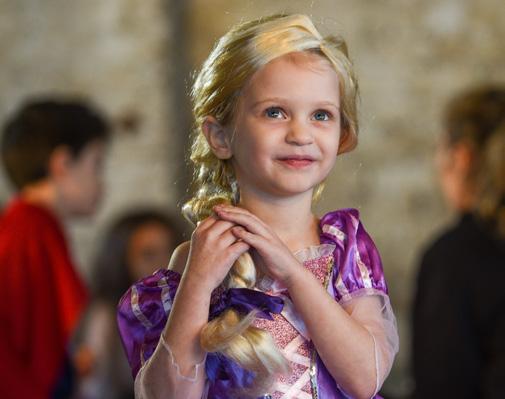
Perform: Rapunzel
Venues in Dulwich, Blackheath, Herne Hill and Beckenham www.perform.org.uk/rapunzel
3-5 April & 8-10 April
Three days of drama, dance and singing, plus lots of games and activities leading to a magical mini performance for family and friends. Ages 4-10.
Funky Monkey Keyboard Workshops
Various locations www.funkymonkey.info
8-12 April
Learn electronic keyboard techniques, try some famous tunes and play musical games and quizzes, all with an Easter theme. Choose from half day beginner’s workshops or a five day holiday course, in small classes with all equipment provided. Ages 5-9.
Global Camps
Kelvin Grove School SE26 6BB www.globalcamps.co.uk
2-5 and 8-12 April
A unique mix of language learning, sports coaching, arts & crafts and outdoor adventure to keep young ones active and engaged during all school holidays. Ages 4-12.
Blackheath High School www.blackheathhighschool.gdst.
net
14 March
Junior School in Action
9am to 11.30am
25 April
Senior School in Action 9am to 11.30am
Dulwich Prep School www.dulwichpreplondon.org.uk
Tours are available weekly. Please enquire with the school for details.
Sydenham High School www.sydenhamhighschool.gdst.
net
12 March
Prep School Open Morning
9.30am to 11am
21 March
Senior School Open Morning 9.30am to 11am
The Art of the Brick
The Boiler House E1 6QL www.theartofthebrickexpo.com
From 6 March
Artist Nathan Sawaya has created over 150 works of art from more
than a million LEGO bricks. The collection includes re-imagined art masterpieces, a 6-metre-long reproduction of a T-Rex skeleton, along with music and multimedia imagery.
Telegraph Hill Festival
In and around SE14 www.telegraphhillfestival.org.uk
9-24 March
A two week long festival of talent and events featuring local artists, performers, groups and organisations through open studios, shows, crafts and more.
Deptford Literature Festival
Deptford Lounge Giffin Street SE8 4RJ www.spreadtheword.org.uk
15 & 16 March
A celebration of the diversity and creativity of Deptford and Lewisham through words, stories and performance. The programme includes FREE, family friendly events including FREE writing workshops for young adults.
Centre for Wildlife Gardening
Marsden Road SE15 4EE www.wildlondon.org.uk
23 March
Pond Life
A FREE family fun day discovering life in and around ponds, for Southwark residents. Book first.
4 & 5 April
Brilliant Birds
FREE family courses discovering birds. For Southwark residents, book first.
Where’s Wally Fun Run
Battersea Park SW11 www.literacytrust.org.uk/ whereswally
24 March
A race like no other and a sight to behold as a sea of Wallys takes on a 10km, 5km or a 1km challenge in one of London’s most scenic parks. All money raised supports the vital work of the National Literacy Trust.
Herne Hill Velodrome
Burbage Road SE24 9HE http://tinyurl.com/yys5fu8r
29 March
Easter Eggs-travaganza
A scavenger hunt through mountain bike trials with tasty chocolate rewards, Frog Bikes goody bags plus face and egg painting. Ages 2-10, book first.
Brixton Windmill
Blenheim Gardens SW2 5DA www.brixtonwindmill.org
31 March
Easter Family Day
An Easter treasure hunt for children, plus craft workshops and guided tours.
Mum2mum Market
Various venues
www.mum2mummarket.co.uk
Nearly new baby and children’s clothes, toys, books and baby equipment.
23 March in Bromley

Peckham Levels
Rye Lane SE15 4ST
www.peckhamlevels.org
Sundays
The Kids’ Table
The Kids’ Table is a pop-up children’s corner service that provides supervised crafts, games and creative table-top fun while parents enjoy some ‘me’ time. Ages 3-10, FREE.
Horrible Histories Terrible Thames Boat Tour www.terribletudors.com
Check the website for dates
Horrible Histories proudly presents its wicked river tour of the Terrible Thames. tremble in terror at the Tower! Sizzle at the Savoy! Give Cleopatra the needle! Be washed away at Westminster! Lose yourself in Lambeth! Get gobsmacked by the Globe! Hold onto your head at London Bridge and escape from Execution Dock! Take a dive with Horrible Histories into the stories of King Henry VIII, Anne Boleyn, Julius Caesar, Queen Boudicca, Jack the Ripper and Captain Kidd, in this history of the Thames with the nasty bits left in!
Blackheath Halls Lee Road SE3 9RQ www.blackheathhalls.com
12 April
Goldilocks
The classic children’s story, performed as a magical live ballet by Let’s All Dance. All ages.
13 April
The Witch and The Egg
One performer and a flock of shadow puppets tell an engaging and heart-warming story about friendship, laughter and flying the nest. Inspired by the book The Witch’s Egg by Madeleine Edmondson. Ages 3+.
20 & 21 April
Spot’s Birthday Party
Join the best birthday party ever in this brand new show with songs and music, party hats, songs, dancing and interactive games. Ages 2+.
Bromley Churchill Theatre
High Street Bromley BR1 1HA www.churchilltheatre.co.uk
19-23 March
Life of Pi
A cargo ship sinks in the middle of the vast Pacific Ocean, stranding five survivors: a hyena, a zebra, an orang-utan, a sixteen-year-old boy and a 450-pound Royal Bengal tiger. With time against them, who will survive this epic journey of endurance and hope?
6 April
Don’t Panic! We Can Save the Planet
James Campbell’s new live comedy show is perfect for anyone who wants to swap being an Eco Worrier for being an Eco Warrior, with solutions for parents to manage their children’s concerns. Ages 6-11.
21 April
Science Museum - The Live Show Explosive family theatre for curious minds.
Greenwich Theatre Crooms Hill SE10 8ES www.greenwichtheatre.org.uk
3 & 4 April
The Singing Mermaid
The singing mermaid is tempted away to join a travelling circus, with the promise of a life of excitement. See Julia Donaldson and Lydia Monks’ story onstage with puppets, music and songs. Ages 3-8.
The Albany Douglas Way SE8 4AG www.thealbany.org.uk
16 March
Boxed In
Follow the journey of someone who can’t make head nor tail of the unspoken rules that surround us all. Ages 3-6.
11 April
The Three Bears
Take along your teddies for an adventure in the woods with original music, puppets and a tale you thought you knew. Ages 0-6.
Sydenham Centre
Sydenham Road SE26 5QX www.spontaneousproductions. co.uk
Weekends 2-24 March
Hansel & Gretel
A new musical version of the classic fairytale featuring a house of sweets, video effects and animation, Hansel, Gretel and the witch Wilma Wonky.
Unicorn Theatre
Tooley Street SE1 2HZ www.unicorntheatre.com
17 March-21 April
The Odyssey
You’ve heard of Odysseus, but this is an entirely different story… meet his adventurous son Telemachus, who can’t wait any longer for his dad to return and sets sail on a really, really, really long journey on stormy seas and across strange lands! Be enchanted by the 60s soul and pop-inspired numbers.

22 March-21 April
I Wish
In many a fairy-story there are wishes granted and fairy-tale endings: but what if your wishes come true in surprising ways? This fantastical tale is filled with songs, self-discovery and joy. Ages 3-7.
Peacock Theatre
Portugal Street WC2A 2HT www.ballet.org.uk/myfirstballet
4-13 April
My First Ballet: Swan Lake
The magician Rothbart has turned Princess Odette into a swan: only at night can she return to human form. Will Prince Siegfried be able to save her, or will he fall for Rothbart’s sorcery? With a narrator to help young viewers follow the story, a shortened version of Tchaikovsky’s wonderful music, beautiful dancing and gorgeous costumes, this is the perfect introduction to the joy of live ballet. Ages 3+.
Picturehouse Cinemas
West Norwood, Greenwich, East Dulwich and Bromley www.picturehouses.com
Sit back and enjoy a big-screen film in a cinema that welcomes families. Sessions include Watch with Baby, Toddler Time, Autism-friendly and a weekly Kids Club.
Bach to Baby
Various dates and venues www.bachtobaby.com
Critically-acclaimed classical concerts for babies and their grownups. Outstanding musicians put on exhilarating performances where babies can ‘join in’ with as much noise as they like!
Bring Your Own Baby Comedy Greenwich, Crystal Palace, East Dulwich and Bromley www.byobcomedy.com
Various dates
A funny, friendly afternoon of top comedy, where baby can come too and join in with the rumpus. Shows feature a new line up of comedians each month with two acts plus a compere. Ages: grown-ups plus under 12 months.
Little Angel Theatre
Dagmar Passage N1 2DN www.littleangeltheatre.com
Until 14 April
The Everywhere Bear
One day the Everywhere Bear gets more than he bargained for when he falls unnoticed from a backpack and embarks on his own adventure. Rhyme and original music bring to life Julia Donaldson and Rebecca Cobb’s book . Ages 3-8.
Puppet Theatre Barge Blomfield Road W9 2PF www.puppetbarge.com
2-24 March
The Insect Circus
Forget reality and become immersed in the strange and beautiful world of the Insect Circus, performed by puppet beetles and grasshoppers, wasps and dragonflies. Ages 4+.
Cutty Sark
King William Walk SE10 9HT www.rmg.co.uk/cuttysark
First weekend of every month
Family Fun Weekends
Climb aboard for family-friendly workshops and activities for all ages.
Weekends and holiday weekdays
Meet the Characters
Meet the captain, chat with the cook, and take a tour with Nannie the Figurehead!
Horniman Museum and Gardens London Road SE23 3PQ www.horniman.ac.uk
Until 3 November
Dinosaur rEvolution
Which dino features are better – horns, spikes or quills? Did T-rex actually have feathers? And how did some dinosaurs survive extinction? Find out through animatronic models, fossil skeletons and skulls, dress up, games and more.
From 5 May
Under the Sea Soft Play Slide, balance, climb and bounce at a brand new aquarium-themed play area among netted play frames, bubbling ball ponds, fish shaped rockers and soft toys. Ages 6 and under.
Woolwich Works
The Fireworks Factory SE18 6HD www.woolwich.works
10 March
Flower Power Family Rave Groovy, man! Dress up and enjoy a Flower Power themed Mother’s Day rave filled with banging dance tunes and DJs, bubbles, foam and craft tables. Families with under 8s.
National Maritime Museum Romney Road, Greenwich SE10 9NF www.rmg.co.uk/nationalmaritime-museum
2 March-1 December
Women of the RNLI
An exhibition highlighting the work
and success of women in a variety of roles to celebrate the bicentenary of the RNLI.
Royal Observatory Greenwich
Blackheath Avenue SE10 8XJ www.rmg.co.uk/royal-observatory
8-17 March
British Science Week
A jam-packed programme of events including behind-thescenes collections, hands-on workshops and the chance to meet astronomers and curators.
Weekends and holiday weekdays
Ted’s Space Adventure
Explore the solar system with a bear named Ted, learning about the things we find there and how they affect us. Ages 3-7.
Somerset House Strand WC2R 1LA www.somersethouse.org.uk
Until 14 April
Cute
The influential culture of cute, featuring kittens and cats, doe-eyed animals, chubby-cheeked babies and flowers, depicted by numerous loans, new installations, memes and music.
Young V&A
Cambridge Heath Road E2 9PA www.vam.ac.uk/young
Until 8 September
Japan: Myths to Manga
Take an exciting and atmospheric trip through Japanese history, exploring how landscape and folklore have influenced Japan’s culture, technology, art and design.
National Portrait Gallery St Martin’s Place WC2H 0HE www.npg.org.uk
20 March and 17 April
Little Explorers
Free monthly sessions where families explore the gallery and the collection through stories, songs and making activities in a fun and relaxed atmosphere. Under 5s.
Tate Modern Bankside SE1 9TG www.tate.org.uk/visit/tatemodern
Until 28 April
Yayoi Kusama: Infinity Mirror Rooms
Step into a large immersive installation to experience Kusama’s unique vision of endless reflections.

The Design Museum
Kensington High Street W8 6AG www.designmuseum.org
Ongoing
Skateboard
The first major UK exhibition to map the design evolution of the skateboard from the 1950s to today – a story of design, daring and disobedience.
Science Museum
Exhibition Road SW7 2DD www.sciencemuseum.org.uk
Power Up
Enjoy playtime at the museum’s hugely popular hands-on video gaming zone, featuring over 160 consoles and hundreds of video games dating back through five decades of gaming.
Ongoing
Turn It Up: The Power of Music
Discover your inner music-maker while learning about the science behind music, how technology is changing the way it is made and enjoyed and how music can impact the way we live our lives.
Museum of London Docklands West India Quay E14 4AL www.museumoflondon.org.uk/ docklands
Until 14 April
Fashion City
Discover the stories behind London’s leading Jewish fashion makers who founded retail chains still on the high street today, and dressed the rich and famous; including David Bowie, Princess Diana and Mick Jagger.
Frameless
6 Marble Arch, W1A 7AP www.frameless.com
Ongoing
Frameless Tots
NEW, dedicated family sessions every weekday morning (11am12pm) during term time at a reduced ticket price for parent +pre-school child, offering an opportunity for parents and little ones to explore Frameless together.
South East
. Please say you saw these events in Families South East London magazine!
www.globalcamps.co.uk
